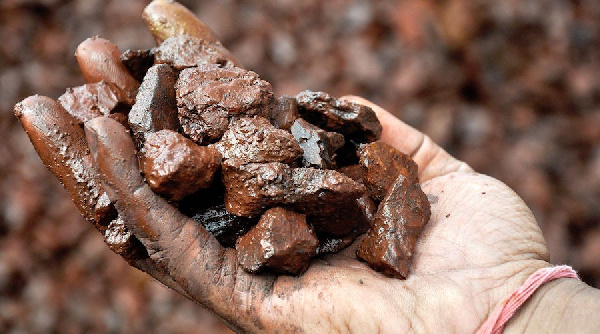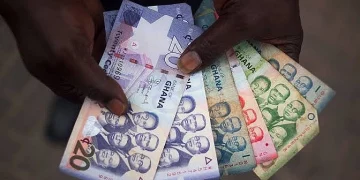Ghana’s Iron Ore Deposits Ranked Among World’s Best in Value and Grade
Ghana is poised to emerge as one of the world’s leading producers of high-grade iron ore, according to the Chief Executive Officer (CEO) of the Minerals Commission, Isaac Andrews Tandoh.
Mr. Tandoh disclosed that two of the country’s iron deposits currently under exploration have been ranked among the best globally in both value and grade, a development that could significantly transform Ghana’s industrial landscape.
Speaking on behalf of the Minister for Lands and Natural Resources at the launch of the maiden Africa Extractives Media Fellowship (AEMF), the CEO described the discovery as a strong signal that Ghana’s mining narrative is evolving from resource extraction to industrial transformation.
“In fact, the two deposits that are being explored in Ghana give one of the best value and grade around the world,” he stated.
Value Addition at the Core of Policy
Mr. Tandoh emphasised that value addition remains central to the government’s mineral development agenda, with specific institutional mechanisms already established to drive this policy direction.
He cited the Ghana Integrated Aluminium Development Corporation (GIADEC) and the Ghana Integrated Iron and Steel Development Corporation (GIISDEC) as key state-backed agencies leading efforts to ensure local beneficiation of the country’s mineral resources.
“Value addition is a priority for us. That is why the government has already taken steps to implement policy decisions to promote value addition to our mineral resources with strong state participation,” he said.
According to him, the overarching vision is to make Ghana a regional hub for mineral value addition, capable of creating jobs, attracting investment, and retaining wealth within the domestic economy.
Industrial and Economic Potential
Mining experts note that if Ghana’s high-value iron deposits are developed strategically, they could anchor the nation’s iron and steel industry, reduce import dependence, and accelerate industrialisation.
Such development, they add, could support critical infrastructure projects — from rail construction to the manufacturing of locally produced industrial machinery and components.
For a country that has historically exported its raw minerals and imported finished products at higher cost, the shift toward in-country processing represents a major step toward economic self-reliance and industrial pride.
Beyond policy and exploration, Mr. Tandoh underscored the vital role of the media in promoting transparency and accountability within the extractive sector. He noted that the Commission’s support for the Africa Extractives Media Fellowship forms part of efforts to deepen collaboration with journalists and enhance public awareness of resource governance.
“The media is a critical link in the work of our government. They are the pivot that drives transparency, advocacy, and awareness in the industry,” he remarked.
The Commission’s renewed commitment to value addition, combined with responsible oversight from the media, is expected to strengthen natural resource governance and ensure that the wealth beneath Ghana’s soil translates into sustainable prosperity for its citizens.








